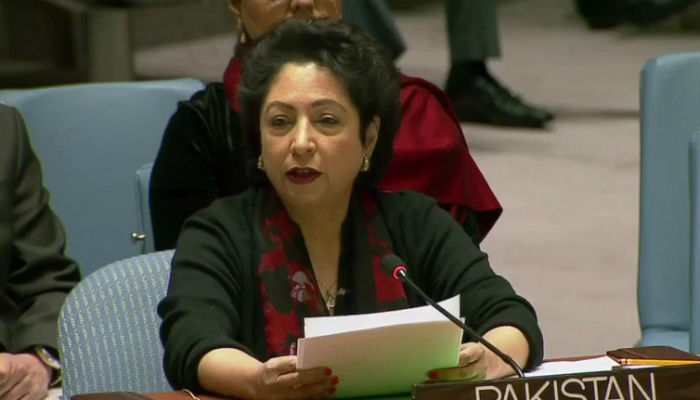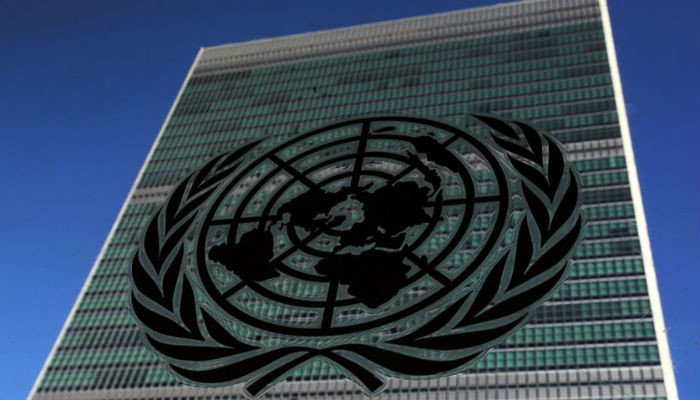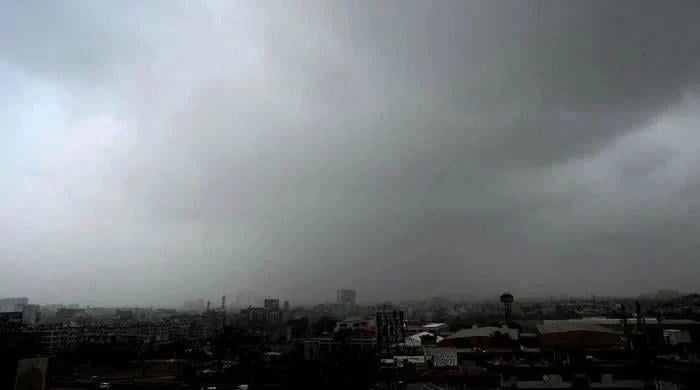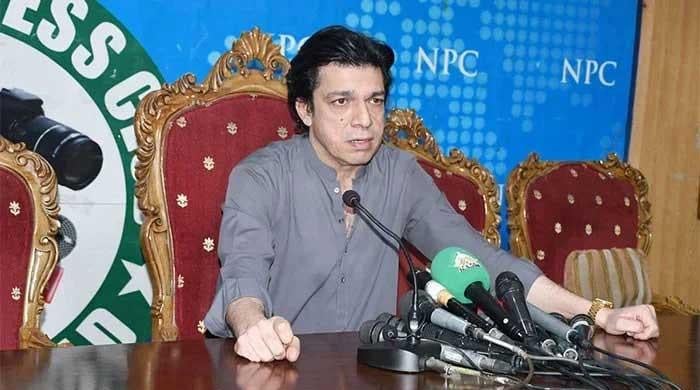Pakistan warns US Jerusalem move threatens to drive Middle East into further chaos
Pakistan’s Ambassador to the UN Dr Maleeha Lodhi addressed Security Council on Wednesday
December 21, 2017

UNITED NATIONS: Pakistan called for resolving two longstanding and internationally recognised disputes of Palestine and Jammu and Kashmir at the United Nations on Wednesday.
"Efforts to change the status of Jerusalem threaten to drive an already volatile Middle East into further turbulence and chaos.”
Speaking in the Security Council debate on challenges to international peace and security, Pakistan’s Ambassador to the UN Dr Maleeha Lodhi said that the Palestinian and Kashmiri people continue to suffer horrific human rights violations at the hands of occupying forces, while the world continues to watch without addressing these egregious situations.
She stressed that their non-resolution was compounding the challenges the world is facing to peace and security.
She also called for the implementation of all resolutions of the Security Council uniformly and non-selectively, adding that selective implementation weakens multilateralism and the credibility of the UN, compounds conflicts, and intensifies the suffering of the affected people.
Painting a bleak picture of the challenges besetting the world today, Ambassador Lodhi said that conflicts continue to rage across the world, from Africa to Afghanistan.
“Civil wars and factional fighting in Syria, Libya and Yemen are becoming more vicious and consequential, generating record levels of human displacement”, she added.
She also referred to Secretary-General Antonio Guterres, who had warned that in the Korean peninsula, ‘we may be sleep-walking into a catastrophe’. “All this is compounding the challenges of a more turbulent and volatile world”, she remarked.
Addressing the root causes of conflict remains the best conflict prevention and resolution strategy, she said.
Dr Lodhi said that to address the complex contemporary challenges to peace and security a clear shift in approach from an emphasis on military action to negotiation and finding political solutions were required.
Ambassador Lodhi emphasised the need to identify the drivers of conflict to effectively address these challenges that include unresolved long-standing conflicts and disputes, foreign military interventions, political and economic injustice, terrorism and violent extremism, and displacement of populations due to persecution, poverty and conflict.
While describing UN peacekeeping as the most cost-effective tool for the maintenance of international peace and security, Ambassador Lodhi said that peacekeeping, on its own, would not be able to deliver the dividends of peace. She underscored the need to strengthen Peacekeeping through support for political solutions to make peace durable and sustainable.
She welcomed the focus on sustaining peace but added that to sustain peace, we have to first build peace, address the drivers of conflict and create the enabling conditions that allow peace to flourish.
Dr Lodhi concluded by highlighting the need for urgent action by the UN in view of the proliferation of conflicts today. The proposed reform of the peace and security architecture, she said, was necessary but not sufficient to make a real difference. “Fundamental change in the way we deal with conflicts is required. Only then will we be able to succeed in our collective quest for sustainable and enduring peace and security”, she added.











